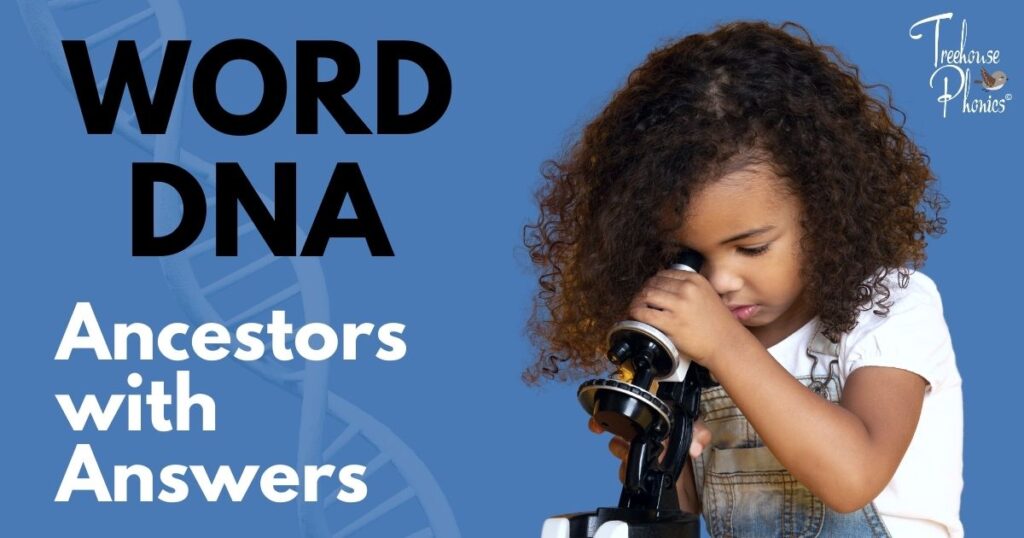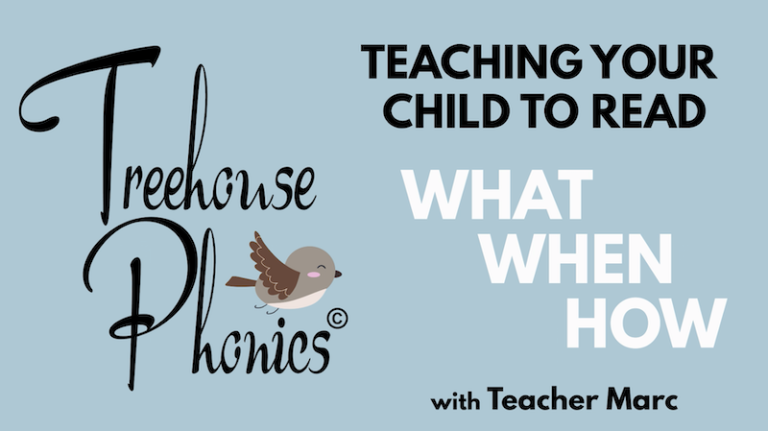The English language does have its fair share of twisted spelling anomalies. Words like colonel, Wednesday, pneumonia, and knight present a blatant disregard for phonics and their use of random silent letters and unusual pronunciations have given the English language a reputation for not playing so nice. There is, however, a way to make sense of this side-show madness in a memorable way that will help you master their quirky spelling. Let’s play pretend geneticist to study the DNA of these words and only then will we solve a few mysteries once and for all.
50-cent word alert! I like to use the term Word DNA but the technical term for learning the origin and history of a word’s spelling is “etymology.” Etymology involves studying the origin, development, and any historical changes in words, including their spellings and meanings. It explores the roots, influences, and linguistic transformations that have shaped words into what we have today. Warts and all!
Besides getting a few answers to some funky spelling, there is a lot to be gained by exploring etymology. Let’s explore a few of these shall we?
Improved vocabulary

It goes without saying that the more words we know, the greater chance we have at fully articulating our needs, wants, and desires. As our vocabulary grows, the art of conversation is greater refined and our thoughts and opinions are received with a higher measure of respect. Who wouldn’t want that? So why would we skim over an unusual-looking word and risk an opportunity to grasp its meaning and expand our vocabulary? Understanding the roots, prefixes, and suffixes of words will certainly shed some light. Knowing a little history can also help us understand why we see and pronounce the word as it is and by doing this, the little story creates a neural anchor that helps us remember the spelling quicker. Something our memories can latch on to.
Enhanced communication skills

This point expands on the thought of building an impressive vocabulary and using the best words for the occasion. The dictionary is full of incredibly posh and sophisticated words and even if you memorized each one, pronounce it perfectly, and could spell each one like a spelling bee grand champion, you’re still left finding the right time and place to use that new word. Basically, it’s about ‘context’. Etymology gives you the back story you need to place a word where it helps in giving an enhanced meaning to the surrounding text or dialog. You know where the word came from but most importantly, you have gained the confidence and understanding to use it with conviction.
Cultural knowledge

It’s one thing to learn a new language and effectively hold a decent conversation with someone in that language. This a huge accomplishment! Bravo! Do you know what most ESL students crave once they get a grasp of the basics? Idioms. These are expressions rich in culture yet without a decent explanation, they don’t make much sense. Looking a gift horse in the mouth or laughing your head off would sound strange to anyone who has never learned to meaning behind the phrase. Idioms in any language are a valuable insight into the culture but we want to dig deeper on a single word level within our own language! With over 30% of English words borrowed from French, any investigation into the spelling stirs up history and culture. For instance, the Norman Conquest in 1066CE.
Here are the four words I mentioned at the outset of this discussion. Colonel, Wednesday, pneumonia, and knight.
Colonel – Why is it pronounced, “kernel”? It turns out that the English spelling of the word was influenced by the French word “coronel,” but the pronunciation remained closer to the Italian word “colonello.” So, we ended up with a spelling that seems far from its actual pronunciation.
Wednesday – Have you ever struggled to spell the day of the week “Wednesday”? Well, you’re not alone! The name “Wednesday” comes from the Old English word “Wōdnesdæg,” named after the Germanic god Odin. The spelling of “Wednesday” was altered over time to match the pronunciation, resulting in its current somewhat puzzling spelling.
Pneumonia – Pronouncing “pneumonia” correctly is challenging enough, but its spelling can also be quite perplexing. The word “pneumonia” comes from the Greek word “pneumōn,” meaning “lung.” The initial “p” is silent due to the Greek influence, leading to a spelling that doesn’t quite match its pronunciation.
Knight – When you see the word “knight,” you might wonder why there’s a “k” at the beginning instead of an “n.” Well, this goes back to the Old English word “cniht,” which meant “boy” or “youth.” Over time, the “k” sound disappeared, but the letter “k” remained in the spelling, resulting in the unconventional pronunciation we have today.
Improved spelling and pronunciation

There will be days when you have little time for spellcheck or Grammarly and have to fire off a text or email at lightning speed. Say you’re about to use a word you’ve used in context a million times and it’s simply the best word you know to express a serious concern. Orally, you’re good to go but now you’re typing the same thought in an email and as you approach your ‘perfect’ word, you break out in a cold sweat because you can’t remember how to spell it. Your recollection of the spelling is so bad that even auto-spellcheck comes up blank. So, like most of us, we cower and regrettably replace it with an inferior word we know we can spell correctly. This happens to our poor children all the time. If etymology will help you and your child remember the spelling and write with greater confidence, is it not worth a little time and effort to dig into the meaning of words that have stumped us for so long?
Ever hear someone mispronounce a 50-cent word? They would have been better off not saying it in the first place. They kind of lost all credibility when they said it wrong and even worse, it made it look like they were trying too hard not to be the dimmest one in the room. We can still use phonics to some degree, along with the background knowledge we get from etymology to get the proper pronunciation under our belts. Youtube helped me out a few times in my voice-over work for some of the strange medical terms that come up now and then. Just type in “How to pronounce…?”. In reality, a word can only be a permanent part of our vocabulary range when we know the meaning, the spelling, and the pronunciation.
Etymology and YOU!
Are you not the least bit curious? Learning the background meaning and history of words can be fun and interesting. The common belief that the English language is a complete mess is generally expressed by those who have simply given up trying to make sense of the anomalies and exceptions to the rule. If you are teaching your child to read and spell, you don’t have that luxury. Your child will hear words outside your vocabulary comfort zone and will come to you asking for meaning and understanding. If we come up blank or can’t even spell the word correctly, this will erode your child’s confidence and ultimately their respect for you as a teacher. Be the first to introduce new words. If you are reading to your child, prepare in advance. Look for words that you think your child isn’t familiar with and take a little etymological detour to help your child see that the irregularities and quirks are part of the charisma and charm of the English language.



